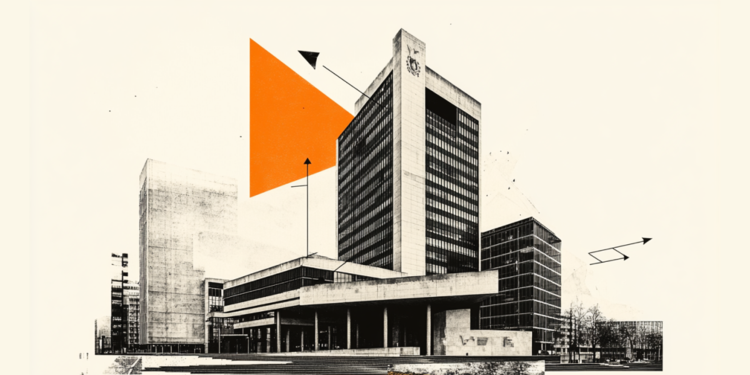Saudi Arabia and Iran announced on Friday that they had agreed to restore diplomatic ties after seven years of hostility, in a deal between the regional arch-rivals that could have far-reaching implications for the Middle East.
Riyadh and Tehran plan to reopen their embassies within two months in a China-brokered deal, Saudi Arabia and Iran said in a joint statement after talks in Beijing on Friday.
They also plan to reimplement a security pact signed 22 years ago, under which both parties agreed to cooperate on terrorism, drug trafficking and money laundering, as well as reviving a 1998 trade and technology deal.
Friday’s announcement is also a diplomatic victory for China in a Gulf region that has long been considered part of the US domain of influence.
This comes as the Biden administration tries to score its own victory in the Middle East by trying to negotiate a normalization pact between Israel and Saudi Arabia.
Talks had been underway since March 6 in Beijing between Iranian national security chief Ali Shamkhani, Saudi national security council adviser Mosaed Bin Mohammad Al-Aiban and China’s top diplomat Wang Yi, according to the report. Iranian state media.
Video of the signing ceremony broadcast by Iranian media showed officials sitting around tables on opposite sides with the flags of Saudi Arabia, Iran and China draped around them.
“We will continue to play a constructive role in properly handling critical issues in today’s world, in line with the wishes of all countries, and demonstrate our responsibility as an important country,” Wang said, adding that Chinese President Xi Jinping supported him. from the beginning.
In an apparent throwback to US influence, Wang said that “the world is not limited to the Ukraine issue”, stressing that the fate of the Middle East must be determined by the people of the Middle East.
“The foreign ministers of the two countries will meet to implement this decision and take the necessary steps for the exchange of ambassadors,” said the joint statement.
“The two sides agree to respect sovereignty and non-interference in each other’s internal affairs.”
Saudi Arabia and Iran had previously held talks aimed at reconciliation in Oman and Iraq.
Riyadh severed ties with Tehran in 2016 after Iranian protesters stormed the Saudi embassy in the Iranian capital following the execution of a Shiite cleric in Saudi Arabia.
Since then, they have fought a proxy war that has involved several neighboring countries, bringing the region ever closer to war.
In Yemen, the two countries supported opposing sides of a civil war that the United Nations has described as one of the world’s worst humanitarian crises.
From there, Houthi rebels fired missiles at Saudi Arabia and the UAE, targeting the oil infrastructure that is vital to their economies.
Saudi Arabia, however, is engaged in direct negotiations with the Houthis, and an unofficial ceasefire appears to be in effect.
Iranian Foreign Minister Hossein Amir-Abdollahian praised the deal and said Tehran would step up its diplomatic efforts in the region.
“Iran-Saudi relations returning to normal strengthens both countries, the region and the Muslim world,” tweeted Amir-Abdollahian on Friday.
Tehran finds itself increasingly isolated on the global stage. Talks to revive Iran’s 2015 nuclear pact with world powers are frozen and relations with Western countries have faced further strains over the Islamic Republic’s brutal crackdown on protests that began in September.
Russia, Iran’s main international ally, is worried about the war in Ukraine, while China, its other ally, has lately been courting Saudi Arabia, Tehran’s archrival.
“For Saudi Arabia, rapprochement with Iran is a key part of a major diplomatic offensive on all fronts,” said Hussein Ibish, a senior resident scholar at the Arab Gulf States Institute in Washington.
“As Saudi Arabia normalizes relations with Iran, it produces a potential framework for eventually, perhaps, normalizing with Israel as well.”
“The fact that it was agreed in Beijing is very significant for China and its rise as a diplomatic and strategic actor in the Gulf region,” said Ibish.
“This seems to recognize China’s unique role in being able to broker relations between Tehran and Riyadh, taking a position that has previously been occupied by European countries, if not the United States, and that will not be particularly pleasant for Washington.”
Reconciliation takes place as China expands its diplomatic reach in the Arab world. In December, Chinese President Xi Jinping was received in Riyadh in an extravagant ceremony as part of a visit that brought together 14 Arab heads of state.
That came just months after a relatively low-key meeting with US President Joe Biden, whose relationship with Saudi Arabia has been frosty.
“China’s role as a brokerage is impressive and could herald a bolder diplomatic stance,” said Sanam Vakil, senior research fellow for the Middle East and North Africa program at Chatham House think-tank in London.
“But we must be cautious about exaggerating Beijing’s intentions. This is more about China’s interests in the region. China has brought together two key players – regional and economic actors – with the aim of reducing regional tensions and facilitating greater economic engagement with both.”
Source: CNN Brasil
Bruce Belcher is a seasoned author with over 5 years of experience in world news. He writes for online news websites and provides in-depth analysis on the world stock market. Bruce is known for his insightful perspectives and commitment to keeping the public informed.







